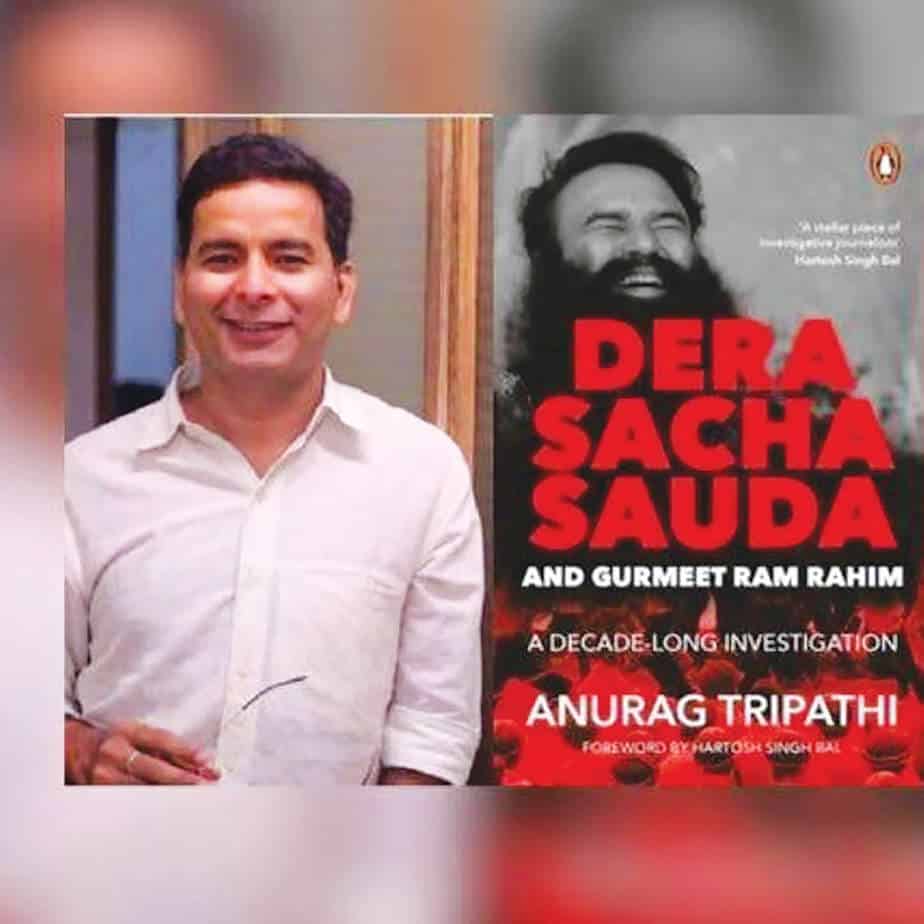An extract from the book on Ram Rahim Singh ‘Insan’ by investigative journalist Anurag Tripathi, about the informer who first gave the tip-off 10 years ago that all was not well at Dera Sacha Sauda
The next two days were business as usual. We camped next to the phone, fervently hoping for a call from the anonymous caller. On the fourth day, during the post-lunch lull, the much-awaited call finally came through.
The anonymous caller asked for our personal numbers and promised to get in touch soon. He did, that evening, and we fixed up a meeting at noon the next day near our office at M-Block market in Delhi’s Greater Kailash-2.
Ask any investigative journalist about the one trait that is a prerequisite in their profession, and they will tell you it is patience. In cases where the source feels there is a threat to their life and where they are fighting a sinister and powerful system, the one thing they need is to be able to trust you. We knew our caller was trying to be sure about us before he took the risk of meeting us in person.
We waited patiently for his call till late afternoon the next day, and called on the number from which he had called us the previous evening. As we suspected, the phone was switched off. Finally, in the evening, he called to say that he was waiting for us at a tea stall in the alley behind our office.
Dressed in a white worn Pathani suit, our anonymous caller had a face now. He appeared to be in his late fifties, of average build. He was visibly fearful when he saw us walking towards him. An initial exchange of pleasantries was followed by a long spell of silence. All this while, we could feel him still trying to gauge whether he could trust us or not.
‘Dekhiye, jo main aapko batane ja raha hun, shayad us par yakeen kar pana mushkil ho. Lekin yeh sach hai.’ (You might not believe what I am about to tell you, but it is true.) Our mysterious source was finally talking. Little did we know what we were about to get ourselves into. The man started by asking us how much we knew about Dera Sacha Sauda and its chief, Gurmeet Ram Rahim Singh ‘Insan’. We told him whatever little we had gleaned from our reading on the Internet—that Ram Rahim ran a sect where disciples were treated equally, and one of its big successes was a drug de-addiction programme.
He smiled and said, ‘That is what most people sitting in Delhi think about him.’
He told us that he was a distant relative of the slain journalist, Ram Chander Chhatrapati, whom we had come across in our research on the Dera. The man alleged that Chhatrapati was murdered as a direct result of publishing several exposés about the Dera and its chief, which included reports about the sexual exploitation and rape of sadhvis residing within the Dera’s premises. We were stunned.
Before telling us more, he handed us the facsimile of a letter and asked us to read it. It was an anonymous letter written in 2002 by a sadhvi to the then prime minister Atal Bihari Vajpayee. The contents of the letter were shocking, to say the least, and it introduced us to the illicit empire of the Dera chief. The three-pager was written in Hindi and its subject was ‘Request for probe into rape of hundreds of girls by Dera chief (Ram Rahim)’.





